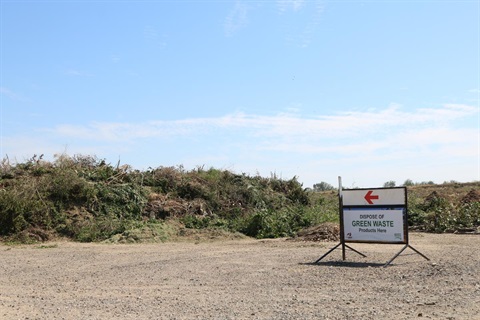Goondiwindi Region explores the future of Waste-to-Energy
Published on 19 November 2025

Goondiwindi Regional Council has led a comprehensive regional Waste-to-Energy Feasibility Study, with the project fully funded and proudly supported by the Queensland Government.
Council engaged Arcadis – a consultancy group with strong expertise in waste-to-energy projects - to identify potential sustainable and suitable technology solutions for the Goondiwindi Region, along with other small to medium sized councils across Queensland.
Energy from waste is an emerging technology in Australia and generally involves the thermal treatment of waste or waste-derived materials to harness energy.
As part of the project a practical toolkit was developed to help other councils across Queensland explore their own waste-to-energy opportunities, positioning Goondiwindi as a valuable contributor to regional circular economy knowledge.
“With changes in recent years to the Queensland government legislative obligations on councils across Queensland, we are encouraged to actively explore alternate uses for waste," said Deputy Mayor Councillor Rob Mackenzie, Council’s portfolio holder for Waste, Regulatory Services and Planning. “The cost to construct and maintain landfills runs into millions of dollars so it is important that we explore options to avoid that impost on ratepayers.”
“The study has provided essential clarity moving forward. Exploring waste-to-energy solutions helped us to understand what’s realistically viable locally and what partnerships would be necessary to make any potential project successful,” he said. “Council manages around 11,000 tonnes of waste annually which is just not enough to make a project viable in its own right. We are however in a strong agricultural region where feedlots, piggeries and cotton gins also produce large quantities of waste outside of Council’s waste operations. This agricultural waste could be added to the process to improve the viability of alternate waste to energy options, whilst enhancing on-farm waste practices.”
Arcadis’ findings identified three potential waste-to-energy options that could provide local benefit. These options however all require substantial financial investment, a substantial and consistent scale of waste material, along with strong stakeholder partnerships to proceed.
A challenge for smaller regional councils, supported by the study findings, is that achieving the appropriate scale of waste will be critical to success. Given existing limitations on long-term stockpiling at local waste facilities, any future waste-to-energy projects would require collaboration with other local government areas, large industries and regional stakeholders to ensure a consistent volume of waste material.
“We’re grateful to the Queensland Government for funding this initiative through the Regional Economic Futures Fund, which has enabled Council to investigate opportunities that could contribute to long-term sustainability and economic resilience in regional Queensland,” said Cr Mackenzie.
The Queensland Government funding aims to explore opportunities for new industries across Queensland, with a particular focus on regional economic growth opportunities.
Council will continue discussions with key stakeholders to explore the study’s findings further and pursue other opportunities to improve waste diversion and circular economy outcomes for the region.